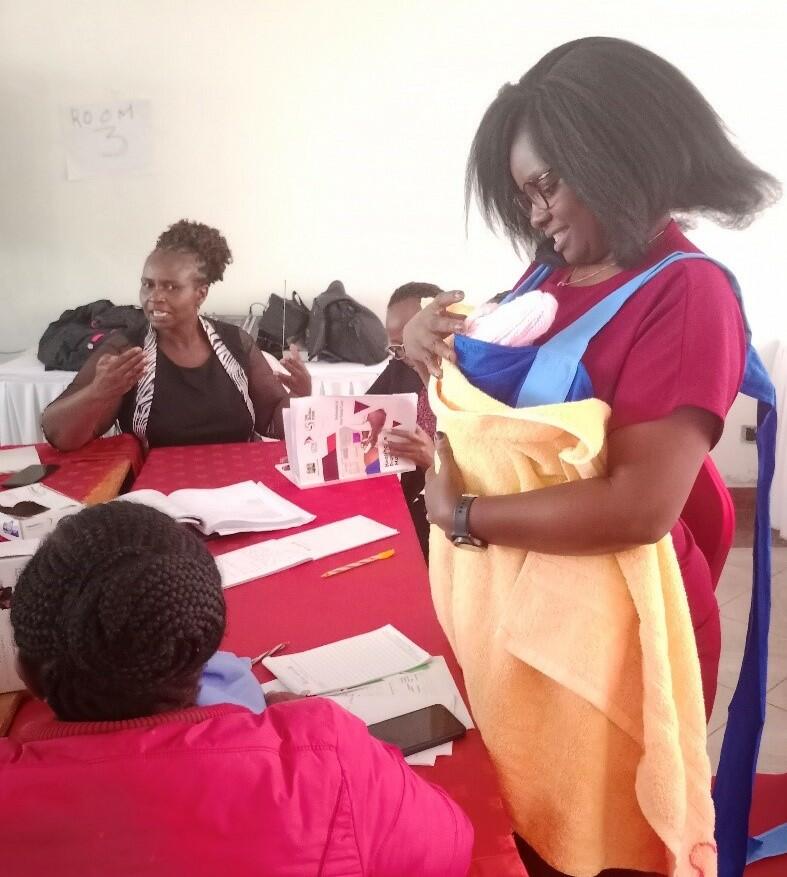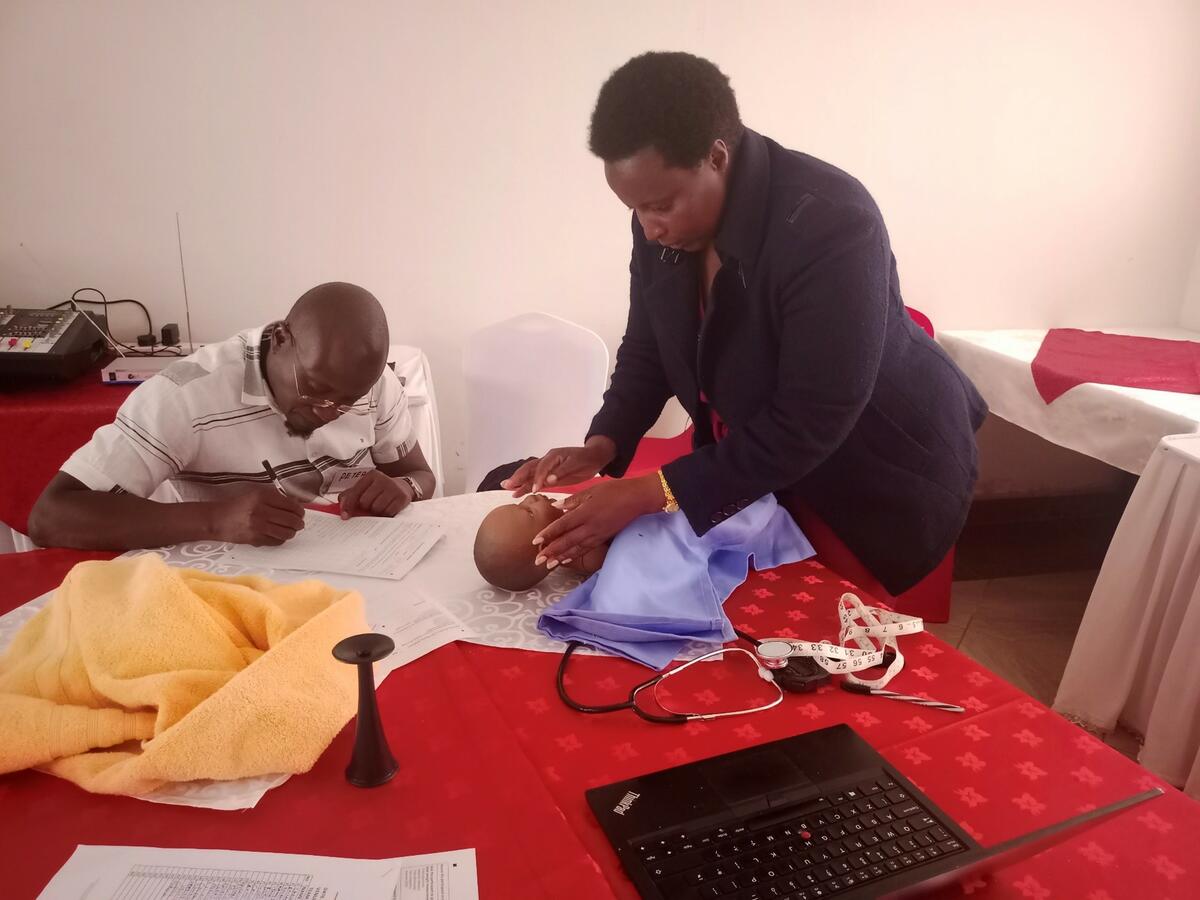
Authors
Martin Eyinda, Technical Officer – Liverpool School of Tropical Medicine (LSTM) Kenya
Onesmus Muchemi, Technical Officer – Liverpool School of Tropical Medicine (LSTM) Kenya
Rael Mutai, Regional Technical Advisor- Liverpool School of Tropical Medicine (LSTM) Kenya
Charles Ameh, Professor Global Health, Head Emergency Obstetric and Quality of Care Unit, Liverpool School of Tropical Medicine (LSTM) United Kingdom
Introduction
Kenya is among countries in Sub-Sahara Africa (SSA) with a high burden of maternal and neonatal mortality. The current maternal mortality stands at 355/100,000 live births, and neonatal mortality of 21 deaths per 1,000 live births. The high mortality has been attributed to delays in receiving appropriate care, an inadequately skilled health workforce, inadequate medical equipment, and poor referral mechanisms, among many other factors. This significantly hinders attaining Sustainable Development Goal 3 targets 3.1 and 3.2.
The Liverpool School of Tropical Medicine (LSTM), in collaboration with Kenya’s Ministry of Health, with funding from Takeda’s Global CSR Program through the Global Fund, is implementing a project on Quality Improvement of Integrated HIV, TB, and Malaria in antenatal (ANC) and postnatal (PNC) Services. The project aims to improve the availability and quality of integrated HIV, TB and Malaria services provided at healthcare facilities as part of ANC & PNC care in Kenya, thus improving health outcomes for mothers and their newborns.
One of the key interventions of the project is the capacity strengthening of healthcare workers to integrate Malaria, HIV, and TB in ANC/PNC services. This competency-based training focuses on evidence-based screening, therapeutic interventions, and health promotion during and after pregnancy to meet maternal and newborn health's physical, mental, and social aspects. It covers essential components of care in ANC/PNC while integrating HIV, TB, and Malaria services, respectful maternity care, communication, and emotional and mental health assessment. The acquired competencies contribute to the timely prevention, detection, alleviation, management, and referral of any complications related to ANC and PNC.
Training Approaches
The project has two training approaches. The two approaches are four-day face-to-face training and blended learning, where participants undergo three phases of training that include self-directed learning, which is hosted on WCEA - a social impact technology platform that provides sustainable and innovative E- and M-health technology solutions for continuous professional development. Participants are given time to go through lecture materials. The second phase is the three-day online real-time learning (Zoom Webinar), where participants have an online discussion of different ANC/PNC-related cases with the guidance of trainers. The last phase is a two-day face-to-face workshop where participants are engaged in hands-on practical aspects of managing ANC/PNC clients. The training targets nurses/midwives, clinical officers and medical officers working in maternal and newborn health across selected project-supported health facilities.
Four-Day Face-to-Face ANC/PNC Training Workshop
The structure of delivering the four-day face-to-face training includes lectures and hands-on practicals. These sessions are offered through plenary discussions, group discussions, role-plays, practical skills sessions, case scenarios, presentations on flip charts, and recaps. Each session starts with a 20-minute lecture followed by a related break-out session. The participants are divided into four breakout groups, and each group rotates as a team in the four break-out stations. The breakout sessions run concurrently.
Training Impact

The training has incorporated a monitoring and evaluation component through pre-and post-test assessments to assess impact. In both tests, participants are evaluated on multiple-choice questions (MCQs) and objective structured clinical examinations (OSCEs) to gauge their knowledge and skill levels before and after the training. The programme also has mechanisms for participants to provide daily feedback to improve the facilitators' training and performance.
Since the project's inception in 2021, LSTM, in collaboration with the County Governments of Vihiga and Uasin Gishu, has conducted nine sets of training in both counties, training a total of 285 healthcare workers. The trained healthcare workers were selected from 41 project-supported facilities. Most supported health facilities are primary healthcare facilities with a few Level 4 facilities, of which 95% are public health facilities and 5% are faith-based hospitals.
The ANC-PNC training has contributed to several improvements. For instance, there has been an increase in the uptake of postpartum family planning and 4th ANC attendance in Vihiga County from 12% in 2020 to 56% in 2024 and from 54% in 2020 to 56% in 2023, respectively. Similarly, the county, a malaria-endemic zone, has seen an increase in IPTP 3 uptake from 11% in 2020 to 57% in 2023. (KHIS).

Conclusion
Strengthening the health system through capacity building of healthcare workers is critical for delivering quality and equitable MNH services. All stakeholders, including the two county governments, must make more efforts to sustain the intervention and impact beyond the project period.